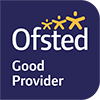Computer Science
Curriculum Leader: Mr J Prevost
Everybody should learn to use a computer, because it teaches you how to think
- Steve Jobs
Curriculum Intent
At Cove we are proud of our innovative and academic curriculum which offers students the chance to explore a range of Computer Science related skills and concepts. Our aim is for all students to make exceptional progress within an academically rigorous curriculum.
The curriculum is designed to facilitate all students developing a disciplined and scientific ways of viewing and making sense of the world around them. They will learn problem solving skills, build resilience and gain insights into the careers and opportunities Computer Science can open up for them
The aim of the Computer Science department is to enable students to become active participants in the digital world. This is achieved by learning cutting edge skills such as coding, data modelling and cyber security.
KS3 Curriculum
All students follow a course of study that develops their technical knowledge, problem solving skills as well as digital literacy. Essential online safety and digital literacy considerations are covered before developing the students' competence and confidence in a variety of IT and Computer Science related areas. Content covered is outlined below:
Year 7 Units of Study
E-Safety; Spreadsheet manipulation; computational thinking, programming and computer systems; information technology and digital literacy; programming essentials using Scratch;
Year 8 Units of Study
Computing systems; developing for the web; data representations; mobile app development; Programming Data Structures and computational thinking – with Flowol; Introduction to Python programming.
Year 9 Units of Study
Introduction to databases; python programming with sequences of data; Cybersecurity; networks; physical computing; Representations – going audio-visual
KS4 Curriculum
Exam Information:
OCR GCSE Computer Science
COMPUTER SYSTEMS - COMPONENT 1
• Study how processors work
• Investigate computer memory and storage
• Explore modern network layouts and how they function
• Build skills in the ever-important realm of cyber security
• Investigate how types of software are used within computer systems
• Stretch wider comprehension of how computers and computing affect ethical, legal, cultural and environmental issues
COMPUTATIONAL THINKING, ALGORITHMS AND PROGRAMMING - COMPONENT 2
• Study fundamental algorithms in computer science
• Build a firm foundation in programming techniques
• Produce programs through diagrams
• Thoroughly test programs and make them resistant to misuse
• Explore Boolean algebra (AND, OR, NOT)
• Understand how we store data within computers in binary form
COMPONENT 3
• Use new-found programming skills on several independent programming tasks. Eventually leading up to coding a project by solving a real-world problem of their choice. There is no programming project assessment in this course.
What will a student gain from this course?
• Thinking and programming skills
• Understanding of problem solving
• Ability to write down solutions to problems for other people to understand
• Well-rounded computing knowledge
How many exams are there?
There are two exam papers at the end of the syllabus;
- One focusing on computer systems.
- One with a focus on computational thinking, algorithms and programming
Each paper lasts 1.5 hours and is worth 50% of the total GCSE. – Both non calculator
Key Website to Support Learning / Useful Resources:
| Subject Documents |
|---|
| Computer Science KS3 Curriculum Map 2023... |

